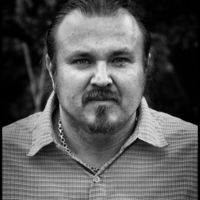"Måla med ljus"
The Village that doesn't exist
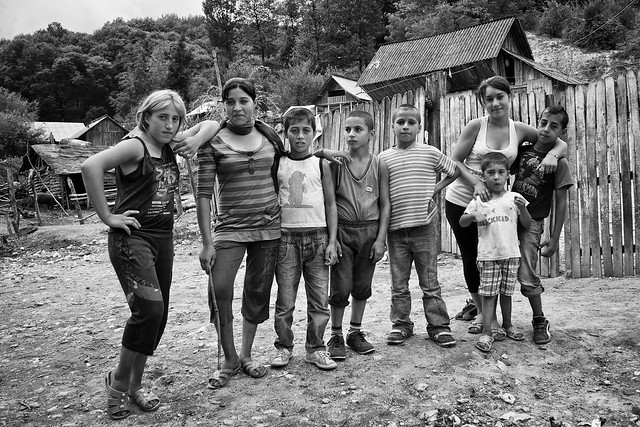
Follow me to three small Romanian villages in the Pauleasca area from where many of the EU migrants that begs on the streets in the Swedish towns Jönköping, Linköping and Stockholm come from. Pauleasca consists of the villages, Troislav, Tinca and Tufanu and about 4000 persons live in the area.
The people in Pauleasca were given land to live on by the communist regime in the late 1940s. But after the Romanian revolution in late 1989 most of the old documents from the communist era wasn't valid anymore and the vast majority of the houses in the area was considered to be illegal settlements. Today Pauleasca doesn't even exist on official Romanian maps. They are not longer allowed to travel on main roads with horse and carriage due to governmental restrictions. They are not longer allowed to pick branches of willow and birch In their nearby woods to make traditional handicraft like baskets and broom that they can sell on the local market. Since 2012 is begging illegal in Romania.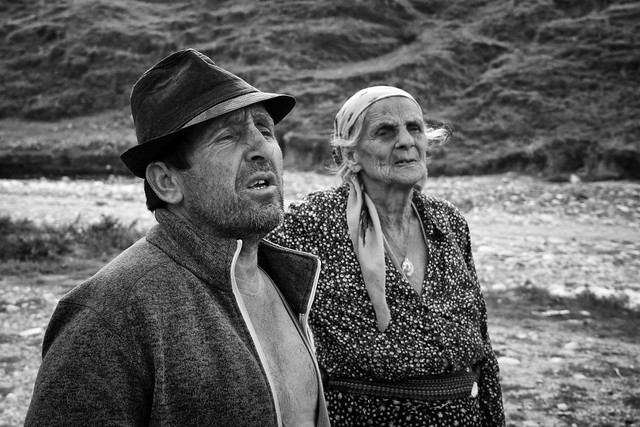
All those new restrictions paired with a unemployment rate of nearly 80 percent has created a desperate job migration to richer countries in the northern parts of the European Union. Most of the rudari and romani that migrate don't find a work and end up begging for money on the streets in their new countries to be able to support their families back home. The migration from areas like Pauleasca is not a cosmopolitan aspiration towards new horizons, it springs from a desperate struggle for survival for a minority that has been subjected for indifference, discrimination, hostility and racism from the state and ethnic romanians for years and years.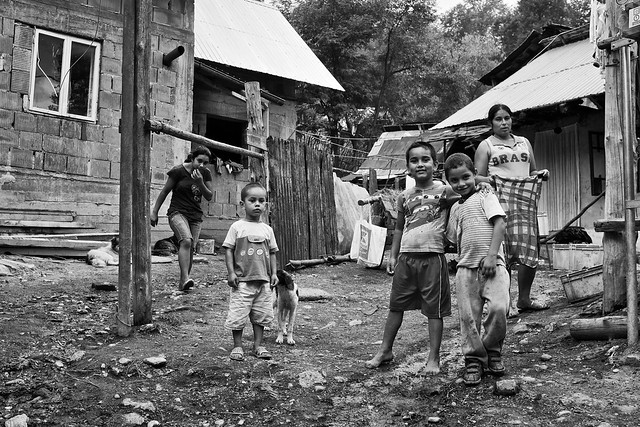
The people in the pictures belong to the rudari minority. Even if they live in Europe their living conditions are down to the same poverty level as people living in third world countries. They have substandard housing. Their life expectancy is 13 years shorter than the average Romanian. They lack running water, proper kitchen, bathroom and toilet. Many of the adults are illiterate but most kids are now in school from grades 1-4. Their food is deficient and many children suffer from malnutrition. Even if the future for the people in the area seems to be painted in dark colours I believe a change is gonna come.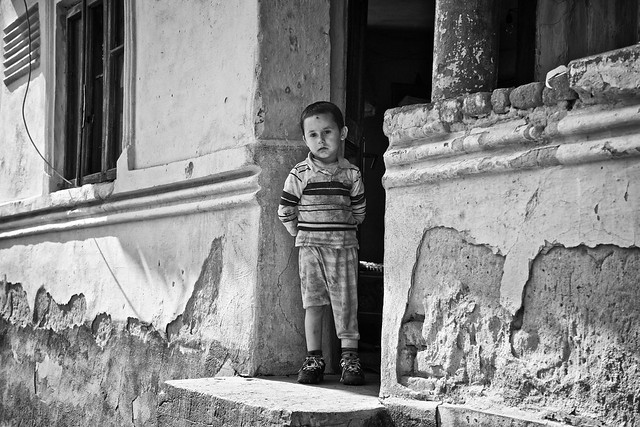
Click the following link if you cant see the Slide-Show on your phone or tablet: www.flickr.com/photos/chasid68/sets/72157649562924582/
Text and Photo: Mikael Good
Opre Roma - Roma Arise!
Roma are the largest and most discriminated minority in Europe. Their level of education is lower than other Europeans. Their health is poorer, their unemployment rate is higher and their life expectancy are shorter than for other Europeans. The history of Roma in Europe is dark and through the ages they have been subjected to racial hatred and outright extermination.
The last two years Sweden and other rich countries in northern Europe has been subjected for a desperate migration from extremely poor Roma people from Bulgaria and Romania. They have no other solution than to go to Sweden hoping to find a work and get money to pay their debts and feed their hungry children. Within the European Union it's allowed for the citizens to stay up to 3 months in another EU country without work and up to 6 months if you have a work.
Although Roma people has been subjected to persecution and oppression for generations in Europe, they are a happy people as you can see in the slide-show. Despite all the difficulties they have been through, they are always close to a good laugh. Joy and music welds them together and it has become a way for them to escape from all the hatred and oppression that they are constantly subjected to.
The Roma mothers and fathers in the pictures came to Sweden with the hope of getting work. Most of them did not find work, and they had to beg on the streets to raise money for themselves and their children back in Romania. I didn't want to photograph them in the vulnerable position when they were begging on the streets. I decided to meet them in their camp. I wanted to get to know them and build relations with them in order to photograph them at their own terms. Therefore I have spent much time getting to know them at the place were they have set up their camp in Huskvarna. If possible I shall visit them in their villages in Romania and meet them and their children and grandchildren in their own environment.
The song in the slide-show is a traditional Gypsy song from Romania which is played by the Roma master musicians Catalin Vlad (guitar) and Stefanica Gheorghe (chello). The photos in the Slide Show has been taken by the Swedish Photojournalist and Social Reporter Mikael Good from Sweden and he has used a Leica M rangefinder camera for many of the pictures.
Ederlezi - Romano dive, amaro dive (Full HD): https://www.youtube.com/watch?v=28S0kpDfJ04
I Believe A Change Is Gonna Come - Opre Roma!
Text and Photo: Mikael Good
Ps: The daughter to one of my all time favorite documentary photographers saw the slide-show and she liked it! :)
Mina bilder på rumänska romer var med i rysk TV
Det är inte var dag som mina bilder når ut till en mångmiljonpublik men i onsdags hände det! Mina bilder på rumänska romer var med i TBN-Russias nyhetssändning som kan ses av ett stort antal ryssar och rysktalande världen över. Tidigare har några av mina bilder på rumänska romer visats i SVT men nu har de nått ut till en betydligt större publik.
Inslaget i nyhetssändningen som är på ryska handlar om migrationen av fattiga och utsatta bulgariska och rumänska romer till rika EU-länder i norra Europa.
/Mikael Good
White Only
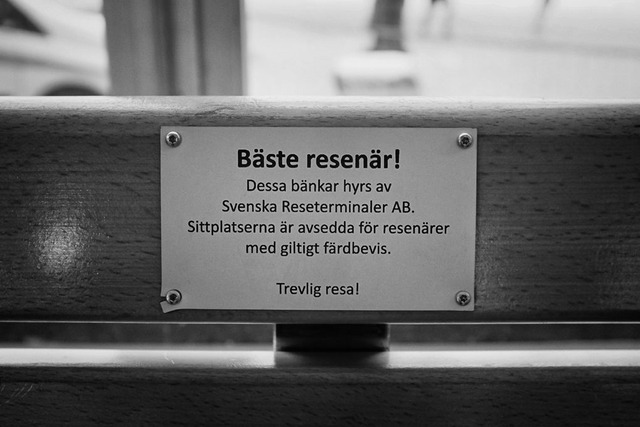
Jag var tvungen att gå in på stationen i Linköping för att med egna ögon se om det som var sagt var sant. Mycket riktigt, på varje soffa satt skyltar som påpekade att sittplatsen enbart är för resenärer med giltigt färdbevis. Jag kunde inte låta bli att att associera skylten med de förhatliga "White Only" skyltarna som tidigare fanns i USA:s segregerade Sydstater och i Aphartheidens Sydafrika.
Tanken är att skyltarna ska hjälpa till att hålla oönskade element såsom hemlösa svenskar, missbrukare, vilsna tonåringar, fattiga EU-migranter och andra trasiga själar borta från vänthallen. Jernhusen som äger vänthallen vill inte låta frusna och trötta hjärtan komma in i stugvärmen för en liten stunds värme.
Att hantera fattigdom och utanförskap ingår inte Jernhusens arbetsbeskrivning, men medmänsklig värme borde definitivt finnas på en offentlig mötesplats. Istället väljer Jernhusen att stänga dörren och tvinga ut alla dem som inte passar in i arbetsbeskrivningen rakt ut i kylan. Jernhusen har genom sitt agerande lyckats att göra Sverige till ett kallare land . Som medmänniskor har vi alla ett ansvar även företag!
Appropå något helt annat fick jag precis ett mail från den verkställande direktören på en världsomspännande TV-kanal. De är intresserade av att visa bildspelet Ederlezi i ett av sina debattprogram, om allt går vägen kan bildspelet komma att nå en mångmiljon-publik! :) Jag återkommer med mer information när jag vet mer.
Text och foto: Mikael Good
Ederlezi - Romano dive, amaro dive

Jag är mycket tacksam för att jag genom foton, artiklar, reportage och opinionsbildning får vara en liten del av ett mycket fruktbärande arbete som i förlängningen kan leda till en varaktig förändring för Rumäniens romer. Om du inte har sett mitt bildspel Ederlezi - Romano dive, amaro dive från romernas hembyar i Rumänien som ackompanjeras av de båda romska mästermusikanterna Catalin Vlad och Stefanica Gheorghe får du gärna göra det nu. Många EU-migranter som är eller har varit i Jönköping, Linköping och Stockholm kommer från de områdena i Rumänien som jag varit i.
Ederlezi - Romano dive, amaro dive (Full HD): https://www.youtube.com/watch?v=28S0kpDfJ04
Text och foto: Mikael Good


